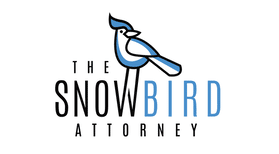
As I write about my experience of brain injury a lot, you might be surprised when I say sometimes, I can’t explain how I feel. There are times this invisible heavy cloak descends on me. I’m trying to get on with a “normal” life whilst the cloak drags me down and wears me out. But the casual observer knows nothing of the cloak, just that my behaviour is different. Weirdly I have no motivation to even try to communicate. It’s just too much of an effort. I imagine when this happens I have more in common with an overworked Donkey, than a woman in the prime of her life.
As I Appear Grumpy, Others Think I’m Annoyed at Them
We’ve all experienced that person who makes you feel like you can’t do anything right. You feel like you should be apologizing for everything. Or making special efforts to win them over. Well, the cloak turns me into that person. It’s not intentional. I’m not really critizing everything, but I’m not showing any enthusiasm either. My brain injury just turns off the communication switch for a while. I still have emotions; I just can’t express them.
As this behaviour doesn’t give them anything to work with, I understand how it makes them insecure. Particularly since females are known for going quiet when they are angry. My partner, James, will ask if he has upset me with a tone similar to a child who thinks they have disappointed their parent. Even when I tell him to ignore my behaviour, he seems unsettled. Perhaps he thinks that is just an excuse so I don’t have to explain what’s wrong?
If you have been reading my blog for a while, you will know by now James is my rock. And yes, I am guilty of sometimes being a battle-axe just because his socks aren’t in the laundry basket. But when my brain injury cloak is on me, my behaviour is nothing to do with anything he has or hasn’t done. So, the thought that I am unintentionally chipping away at his confidence is awful. I don’t want to make him question himself when he is completely innocent. In fact, I don’t know where I would be without him.
My Tips on Dealing With This Situation
My not an expert or a counsellor, all I can tell you is how I’m dealing with this. It has taken me time to get to this point. So, if highlighting this helps smooth another person’s relationship, it’s worth it.
- Acknowledge that it happens. Just because I don’t mean to make James question himself, it doesn’t mean it’s OK. I didn’t recognize it before as I didn’t have the ability to. But now I do, just ignoring it won’t solve anything.
- Talk about it when you can. Even if it’s days later, I find a moment that it good for both of us to run through what happened. James is very understanding, which makes it easier. But even if the person in your life struggles to put themselves in your shoes, it’s important they see you making the effort. Most people will find it touching and sincere, which will help them see your bond isn’t broken.
- Have a signal. Now I have described this as the heavy cloak feeling in this way, that’s all I need to say in the future. Then he will know that I can’t go into detail during that moment, but he doesn’t need to worry. But you can make a single where you don’t even have to say anything. It could be a long squeeze of their hand, a kiss on the tip of their nose (as long as they don’t have a cold at the time) or just a simple knowing nod.
I sometimes am guilty of thinking that as he knows I have a brain injury; he should have got used to my behaviour by now. But that’s absolving myself of responsibility for how my actions affect him, which isn’t fair. Yes, it’s true that I can’t help my bad days, but he isn’t to blame for them either. So, he shouldn’t feel like he has to tiptoe around his home in hope I won’t use him as a punching bag. (Just to be clear, I’m not violent I just mean verbally.) I’ve said it before in Support Carers, but it’s important we don’t forget they are in this boat too, even though none of us planned this.
Michelle Munt sustained a serious brain injury in a car accident back in December 2014. The journey to recovery has been a challenge and as a result she had to give up her career in recruitment. However, her confidence has grown and now she is able to run her own business as a coach, supporting others. She maintains a blog documenting her various struggles and offering advice to other brain injury survivors at: www.jumbledbrain.com.
Michelle is also a member of Crash Support Network and we thank her for her ongoing support.
This article is also featured in our 2020 Winter Issue of Sharing our Recovery





